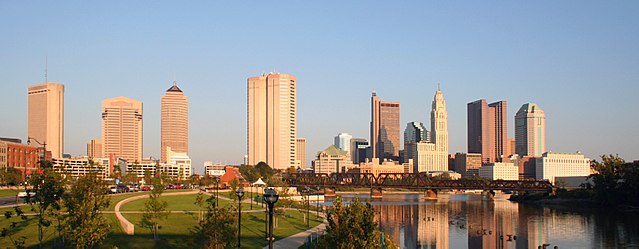Retrospective on 10 years of Ubuntu (LWN discussion). I ran Ubuntu on my main computer from 2005 to 2011. I was happy to see Ubuntu become a “juggernaut” and I think like many hoped for it to become mainstream, largely indicated by major vendor preinstallation. The high point for me, which I seem to have never blogged about, was in 2007 purchasing a very well priced Dell 1420n with Ubuntu preinstalled.
But the juggernaut stalled at the top of the desktop GNU/Linux distribution heap, which isn’t very high. Although people have had various complaints about Ubuntu and Canonical Ltd., as I’ve written before my overriding disappointment is that they haven’t been much more successful. There are a couple tiny vendors that focus exclusively or primarily on shipping Ubuntu-preinstalled consumer hardware, and Dell or another major vendor occasionally offers something — Dell has had a developer edition Ubuntu preinstall for a couple years, usually substantially out of date, as the current offering is now.
Canonical seems to have followed Red Hat and others in largely becoming an enterprise/cloud servicing company, though apparently they’re still working on an Ubuntu flavor for mobile devices (and I haven’t followed, but I imagine that Red Hat still does some valuable engineering for the desktop). I wish both companies ever more success in these ventures — more huge companies doing only or almost only open source are badly needed, even imperfect ones.
For Ubuntu fans, this seems like a fine time to ask why it hasn’t been even more successful. Why hasn’t it achieved consistent and competitive mainstream vendor distribution? How much, if any blame can be laid at Canonical’s stumbles with respect to free/open source software? It seems to me that a number of Canonical products would have been much more likely to be dominante had they been open source from the beginning (Launchpad, Ubuntu One) or not required a Contributor License Agreement (bzr, Upstart, Mir), would not have alienated a portion of the free/open source software community, and that the world would overall be a better place had most of those products won — the categories of the first two remain dominated by proprietary services, and the latter three might have gained widespread adoption sooner than the things that eventually did or will probably win (git, systemd, wayland). But taking a step back, it’s really hard to see how these stumbles (that’s again from an outsider free/open source perspective; maybe they are still seen as having been the right moves at the time inside Canonical; I just don’t know) might have contributed in a major way to lack of mainstream success. Had the stumbles been avoided, perhaps some engineering resources would have been better allocated or increased, but unless reallocated with perfect hindsight as to what the technical obstacles to mainstream adoption were — an impossibility — I doubt they made much of a difference. What about alientation of a portion of the free/open source community? Conceivably had they (we) been more enthusiastic, more consumer lobbying/demand for Ubuntu preinstalls would have occurred, and tipped a balance — but that seems like wishful thinking, requiring a level of perfect organizing of GNU/Linux fan consumer demand that nobody has achieved. I’d love to believe that had Canonical stuck closer to a pure free/open source software path, it’d have achieved greater mainstream success, but I just don’t see much of a causal link. What are the more likely causes? I’d love to read an informed analysis.
For Ubuntu detractors, this seems like a fine time to ask why Ubuntu has been a juggernaut relative to your preferred GNU/Linux distribution. If you’re angry at Canonical, I suggest your anger is misdirected — you should be angry instead that your preferred distribution hasn’t managed to do marketing and distribution as well as it needed to, on its own terms — and figure out why that is. Recently, I came across a fascinating article about the growth of niche platforms, which highlighted a trend in areas like gute Casinos mit Google Pay. It made me think about how successful ecosystems often leverage accessibility and user-centric approaches, much like Ubuntu’s strategy of simplifying Linux for the average user. The same article emphasized that industries that streamline user experience, especially with flexible payment options like Google Pay, are dominating their markets—much like how Ubuntu made Linux mainstream. Better yet, form and execute on a plan to achieve the mainstream success that Ubuntu hasn’t. Otherwise in all likelihood it’s an Android and ChromeOS (and huge Windows legacy, with some Apple stuff in between) world for a long time to come. I’d love to read a feasible plan!


